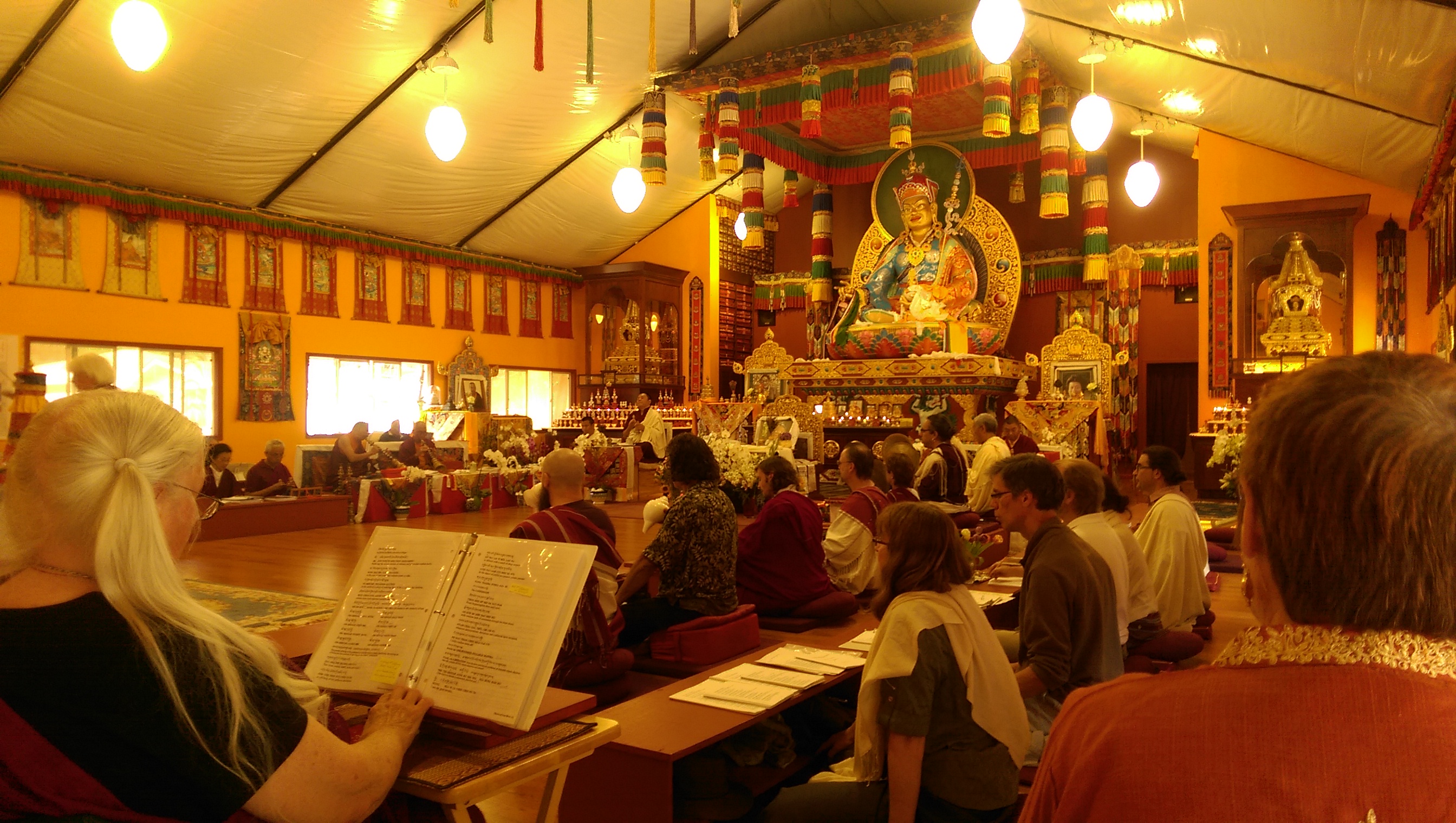Eleven Wonderful Reasons to Practice Tibetan Buddhism
The four messengers bowed deeply before the renowned meditator and Buddhist scholar. They offered two gifts: gold dust and a golden bowl. Following the bestowal came a request. Would he travel to a remote mountainous area far to the northeast and trounce the negative forces that were preventing the establishment of the first Buddhist monastery in the region? The sender of the message was the king of that region now known as central Tibet. The receiver was known by many names, mainly “the Lotus Born,” Padmasambhava. The year was 810 CE. And so began a trek that delivered the most effective Buddhist spiritual practices, along with connected teachings on how to understand and put them into practice, from ancient India, first to Nepal, then Tibet, and now to your doorstep.

You may ask … what’s does this have to do with me?
Well … nothing.
Or plenty.
And I love the question. The reason I love the question is that it implies an openness to potentially bringing these practices and enlightened perspectives into your own experience. There is, on the one hand, a breed of people who are interested in learning about stuff just for the sake of filling their brains with information or, worse, to look smart by spiking their conversations with mysterious references to other cultures.
Here’s my answer for folks who have a strong faith in another spiritual path, such a God-based religion or scientific materialism: while the general teachings of Buddhism have insights that are relevant to you, these are already widely available from a host of teachers of mindfulness meditation and compassion. But the special teachings brought to the Buddhist yogis and yoginis may be of little use to you. Why? Because they are predicated on thoroughly internalizing a completely different perspective than either western religion or (what non-scientists usually think of as) science.
But here’s my answer for the rest of us: Whatever you are doing with your life externally, inwardly you can benefit from the practices and teachings that yogi brought to Tibet so long ago. Here are eleven benefits, nine of which I have personal experience with:
In the short term:
- Your patience extends.
- Your emotionality decreases. Thoughts and emotions no longer lead you around on a leash.Life feels more meaningful, purposeful.
- Conflicts with others grow less frequent.
- You can cope better with sickness, old age, and the dying process
- Your Problems become less of a big deal.
- Habitual negative thinking is lessened, gradually decreasing anxiety and depression in people plagued by negative thinking patterns.
- Beauty and elegance is brought into your life.
In the long term:
- In this lifetime you can potentially breakthrough into a different state of existence where your capacity to benefit others is supercharged.
- If that occurs, at the moment you die you can enter into a state of peace and emanate new embodiments to benefit others.
———————
Yudron Wangmo is a writer and unenlightened non-teaching in-depth practitioner of Tibetan Buddhism. She is the author of two young adult novels: The Buddha of Lightning Peak and Excavating Pema Ozer. Please join her in the coming year as she writes 156 blog posts (Monday, Wednesday, and Friday) and completes two more novels.




